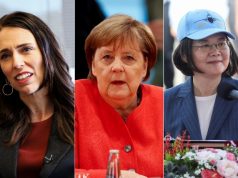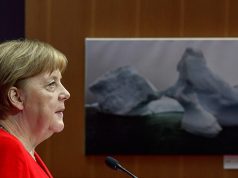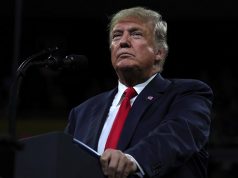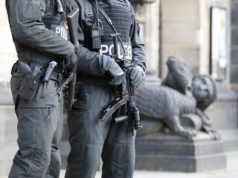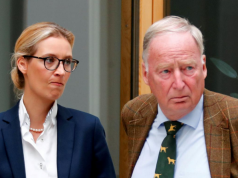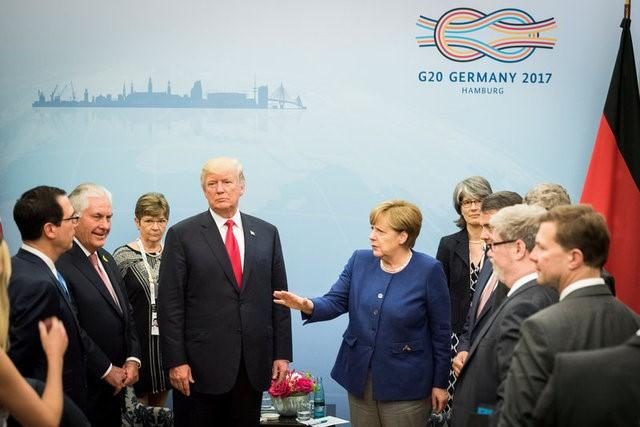
BERLIN – Turnout slipped slightly in Germany’s election despite politicians warning that apathy could boost the far-right, expected to return to parliament after a half century’s absence, overshadowing Chancellor Angela Merkel’s expected victory.
After shock election results last year, from Britain’s vote to leave the European Union to the election of US President Donald Trump, many look to Merkel to rally a bruised liberal Western order, tasking her with leading a post-Brexit Europe.
Some 41.1 percent of voters had cast ballots by 1200 GMT, the Federal Returning Officer said in a statement, down from 41.4 percent at the same time four years ago, suggesting not all had heeded the advice of President Frank-Walter Steinmeier.
“It has perhaps never been as clear that the elections are about the future of democracy and Europe,” he wrote in mass-market newspaper Bild am Sonntag, amid polls showing that as many as a third of Germans were undecided.
“If you don’t vote, others decide.”
In Germany’s proportional election system, low turn-out can boost smaller parties, such as the hard-right Alternative for Germany (AfD), giving them more seats from the same number of votes.
In regional elections this year, Merkel’s conservatives suffered setbacks from the AfD, which profited from resentment at her 2015 decision to open German borders to more than one million migrants.
But with the migrant issue under control this year, Merkel has overcome earlier doubts over running and thrown herself into a punishing campaign schedule, presenting herself as an anchor of stability in an uncertain world.
Visibly happier, Merkel campaigned with renewed conviction: a resolve to re-tool the economy for the digital age, to head off future migrant crises, and to defend a Western order shaken by Trump’s victory last November.
The overall fall in turnout masked great regional variation. North Rhine-Westfalia, Germany’s most populous state, reported a 3 percent increase in turnout, while the city of Munich saw a 10 percent increase. In some of the eastern states where the AfD is strong, turnout held steady.
“GRAVEDIGGERS OF DEMOCRACY”
Both Merkel and her main challenger, Social Democrat leader Martin Schulz have warned that low turnout could help extreme parties, especially the AfD, whose arrival in parliament could signal a break from the steady, consensus-based politics that has marked Germany’s prosperous post-war period.
Schulz, who on Friday described the AfD as “gravediggers of democracy”, on Sunday told reporters he was still optimistic that his party, a distant second in polls, would pick up the votes of the undecided.
Merkel, escorted under an umbrella into the polling station by her scientist husband Joachim Sauer, smiled as she voted in Berlin, but said nothing.
An INSA poll published by Bild newspaper on Saturday suggested that support was slipping for Merkel’s conservatives, who dropped two percentage points to 34 percent, and the SPD, down one point to 21 percent. The two parties now govern Germany in an unwieldy “grand coalition”.
The anti-immigrant AfD, whose leaders have called for Germany’s World War Two army to be honored, rose two points to 13 percent in the latest poll, putting it on course to be the third-largest party.
“I hope that our democracy can deal with a party that has said, in my view, intolerable things in the media,” said Kathrin Zimmermann, voting in Berlin. “I hope the right-wing pressure doesn’t get too strong.”
Should she win a fourth term, Merkel will join Helmut Kohl, her mentor who reunified Germany, and Konrad Adenauer, who led Germany’s rebirth after World War Two, as the only post-war chancellors to win four national elections.
Coalition-building after the election could be very lengthy as potential partners are unsure whether they really want to share power with Merkel. All major parties refuse to work with the AfD.
Electoral arithmetic might push Merkel to renew her grand coalition with the SPD, or she might opt for a three-way alliance with the pro-business Free Democrats (FDP) and environmentalist Greens.
Voting opened at 8 a.m. (0600 GMT) and will continue until 6 p.m. (1600 GMT), when exit polls will give a first indication of the outcome.




